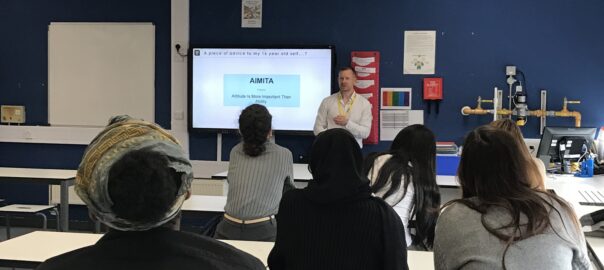Education and the power to succeed

Last month, The Sutton Trust, in collaboration with the Social Mobility Commission, published its excellent “Elitist Britain 2019” report. The research highlights how inequality is still very much entrenched in society, with executive powers across a range of industries in the hands of a relatively narrow section of the population. Media, civil service, and creative are some of the industries illustrating a disproportionally high percentage of privately educated decision-makers. The challenges of social mobility in a nut shell.
I was not surprised by the figures. The lack of diversity in senior management across public, private and indeed third sector organisations is all too clear to see, whether related to educational background, gender, or ethnicity. At the Mayor’s Fund, we are confronted by this every day. We see it when we go into schools and speak to teenagers who lack positive role models. We see it when we introduce career options unknown to them. We see it when we work with young people struggling to make their way in the world of work because they don’t have the social networks or professional connections. We see it all the time.

And it makes me wonder: why do we still have private education if there is no benefit to society? The system of fee-paying schools will never work in favour of children from low income backgrounds. And this is not all. We rank our schools, colleges and universities by grades and other achievements. It drives a level of competition that works best for those who are ‘plugged into’ the system, such as educated and well-connected parents and other support networks. As a result, inequality is introduced from an early age onwards and driving education away from what it fundamentally should be about: preparing young people for life, equipping them with the confidence, knowledge and skills to contribute to a thriving society. Rather than providing quality for all, our system offers an unlevel playing field, generates pressure and ultimately drives greater inequality. Figure are stark: The most persistently disadvantaged children in London are 12 months behind non-disadvantaged children by the age of 16[1].
The Sutton Trust makes very important recommendations about widening participation in education and the role of business in driving social mobility. We fully agree and are already implementing a range of programmes that do exactly that. But we also want to want to make a case for education being the place for children where they have a safe space to learn, to develop and to enjoy. Where success is not just defined by grades, but by expanding horizons and, in the case of young Londoners, connecting to the incredible tapestry of social, cultural and economic opportunities our capital has to offer.
There is a tendency to define social mobility in terms of improved jobs and better pay and these are obvious, critical components for people’s ability to get on in life. However, if we truly want to address the systemic inequalities that hold so many of our young people back, interventions need to start at an early age, we need to redefine measures of success, and include all children, regardless of background, in progress.
[1] [1] https://www.london.gov.uk/sites/default/files/final_epi_edits_design_final_gla_annual_report_2017_0.pdf



